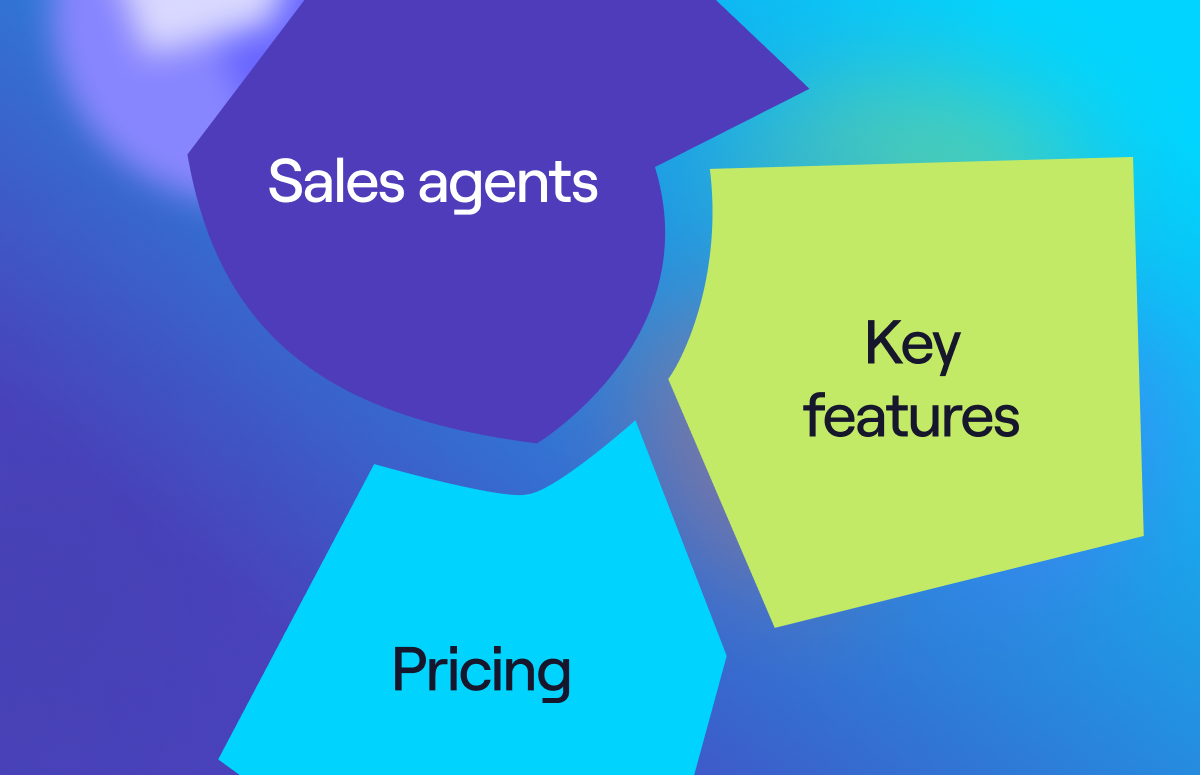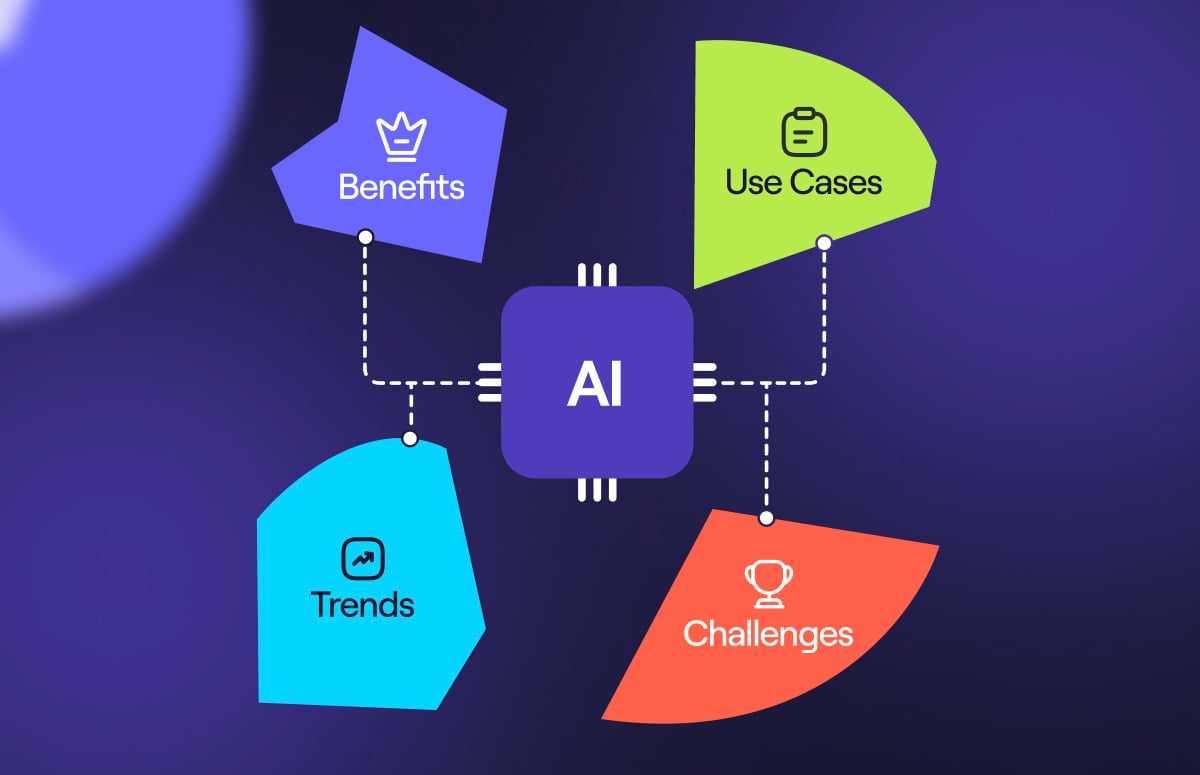21 Sales Qualification Questions to Identify Quality Leads
What's on this page:
Qualification is one of the most important stages of the sales process. But what is it, and what sales qualification questions should you ask?
Bradley Davies, former sales rep and Account Executive at Cognism, defined sales qualification as:
“The process of evaluating whether a prospect is a good fit for your product or service.”
“The core principle is to identify the prospect’s pain and judge if your solution can fix it.”
Sales qualifying questions help you quickly determine if the prospect is a good candidate to enter the sales funnel.
In this blog, you’ll learn about the sales qualifying process, and you’ll get a list of powerful questions to ask your leads.
Go! 👇
The sales qualification process
In Cognism’s early days, we taught our sales team to qualify potential leads according to the BANT criteria:
- Budget - is the lead willing and able to spend?
- Authority - is the lead the ultimate decision-maker?
- Need - does the lead have a problem that your product can solve?
- Timing - is the lead looking to buy quickly?
Today, we use MEDDIC, which stands for:
- Metrics - refers to the quantifiable measures of success that your solution can deliver to the prospect. It involves understanding the specific key performance indicators (KPIs) that the prospect values, such as revenue growth, cost savings, productivity improvements, or ROI.
- Economic Buyer - this is about understanding the individual who has the authority and budget to make the purchase decision. This step focuses on understanding their needs, priorities, and the criteria they use to evaluate potential solutions.
- Decision Criteria - specific factors that the sales prospect will consider when making their purchasing decision. They include understanding what features, functions, or outcomes are most important to the customer and how they’ll compare different solutions.
- Decision Process - involves understanding the sales process the prospect will follow to reach a decision. It includes identifying the stages of the decision-making process, who is involved at each stage, and the timeline for making a decision.
- Identify Pain - this is about understanding the specific pain points or challenges that the prospect is experiencing and how your solution addresses them. This involves asking questions to uncover the underlying problems and demonstrating how your solution can alleviate those issues.
- Champion - a champion is an advocate within the prospect’s organisation who supports your solution and can help influence the decision-making process. Building a strong relationship with a champion can provide valuable insights and help navigate internal politics.
The top sales questions to ask your prospects
All of the questions we recommend our sales reps ask during qualification are based on the MEDDIC criteria.
And here they are! Scroll 👇 to see our list of sales-qualifying questions.
1. What are your current business growth goals?
This open-ended question helps you understand if your product can help the potential customer achieve their goals.
If there isn’t alignment or they have unrealistic sales goals, this is the basis for disqualification.
2. What regions are you looking to prospect into?
Understanding the prospect’s target regions determines whether your product is relevant.
If they target regions you can’t support, you can disqualify them.
3. How does your sales team generate new leads?
It’s useful to get an idea of your potential prospect’s lead generation methods. They could be ineffective or might not align with your target market.
This could qualify them as an unsuitable prospect.
4. What does your current sales strategy look like?
This sales qualification question tells you if your offering corresponds with the prospect’s sales strategy.
What you’re looking for here is a good fit - if their B2B sales strategy is incompatible, it might qualify them out.
5. Who is usually involved in buying decisions for new tech?
Are you looking at the right ideal customer profile?
If your prospect lacks decision-making authority or if the decision-making process involves individuals who aren’t relevant to your offering, this could disqualify them.
6. What tools are you currently using?
Knowing the tools a prospect uses helps assess compatibility and integration potential.
If your solution doesn’t work with their existing sales tech stack, it’s time to move on!
7. Have you used data providers in the past?
This simple question sheds light on whether the unqualified prospect values your custom solution.
If they’ve never used data providers or have had negative experiences with them, it could indicate a misalignment.
Note: you can replace “data providers” with whatever category your current solution falls into.
8. What did you like about them? What did you dislike?
Guess what? In the buying process, the best predictor of future behaviour is past behaviour!
These open-ended questions enable you to discover more about your prospect and their customer experience with your competitors.
Gathering feedback on their past experiences helps assess their preferences and expectations. It’s another way to identify a mismatch.
9. Are you in a position to take on new clients right now?
This is a powerful sales question! Does the prospect have the capacity, resources, and readiness to enter into a new business relationship?
If it isn’t a business priority, you can disqualify them for now.
10. What are the key challenges or pain points you face in your industry?
A nuanced understanding of the prospect’s pain points allows you to understand if you can solve them.
If your product or service can’t solve their challenges, that’s solid ground for disqualification.
11. What are your expectations regarding pricing negotiations?
This budget question aims to identify wiggle room for a pricing agreement.
Perhaps the prospective client has unreasonable pricing expectations or demands a discount. In this case, it’ll be difficult to reach a pricing agreement.
12. Can you provide an overview of your current budget allocation for new purchases?
Ultimately, the buck stops here. This sales lead qualification question assesses whether the prospect has the financial resources to invest in your solution.
If your pricing is out of reach, or they’ve allocated funds elsewhere, a sale is unlikely.
13. What is your decision-making process for purchasing new solutions?
A clear view of the prospect’s decision-making process is invaluable.
A convoluted process, or one that involves excessive delays, could result in misaligned timelines and expectations.
If their process isn’t a good fit for yours, it’s time to take them out of your sales qualification process.
14. What are the specific criteria you consider when evaluating potential vendors?
This is a great question to sort sales-qualified leads from unqualified! It evaluates whether you meet the prospect’s requirements and how you differentiate yourself from their current provider.
If their criteria are incompatible, it’s time to move on and look for the next qualified prospect!
15. What level of support and training do you expect during the implementation phase?
This is about understanding if you can provide the assistance the prospect needs to get up and running.
It can be a disqualifying factor if their expectations go above and beyond what you can provide.
16. What is your timeline for deciding on a new vendor?
This open-ended question is a temperature check for the prospect’s urgency. Does their time frame match yours?
If their decision-making process lacks any clear timeline, it could be time to move on.
17. What decision criteria do you use to evaluate new solutions’ return on investment (ROI)?
Results are important! Understanding what your prospect is looking for helps assess alignment.
Their ROI criteria may be unrealistic, or they might prioritise factors your solution can’t directly impact, in which case - it isn’t a match.
18. What are the key performance indicators (KPIs) you use to measure the success of your sales efforts?
The prospect’s KPIs tell you if your solution can contribute to their desired outcomes.
If the KPIs aren’t related to your offering, expectations may not align.
19. How do you typically handle vendor contracts and legal processes?
This qualification question gives you a view into how the prospect approached previous vendor contracts and legal processes.
A history of prolonged negotiations could be a sign you’re incompatible!
20. What are your expectations around integrating a new solution with your existing systems and tools?
This sales qualification question aims to determine whether your product can seamlessly integrate with the prospect’s existing infrastructure.
If their requirements exceed your capabilities, it may indicate potential challenges.
21. How do you typically handle contract renewals?
Asking this question gives you insight into the prospect’s approach to long-term partnerships.
If there’s a long history of changing previous providers, it can be a red flag to drop the deal and move on to the next opportunity.


-1.jpg)
